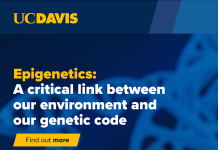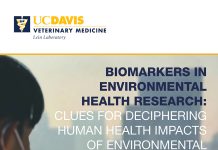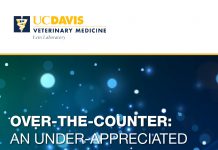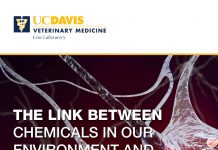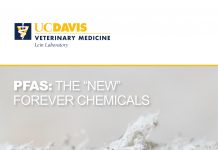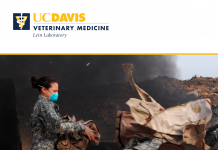Open Access Government produces compelling and informative news, publications, eBooks, and academic research articles for the public and private sector looking at health, diseases & conditions, workplace, research & innovation, digital transformation, government policy, environment, agriculture, energy, transport and more.
Home 2025
Archives
What do we know about the human health risks of microplastics and nanoplastics?
Plastics have greatly benefited humanity, enabling many significant advances in medicine, electronics, aerospace, construction, food packaging, and sports. However, there is growing concern that plastics may also be responsible for significant harm to the earth’s environment and human health.
The challenge of determining the health risks of low-dose chemical exposures
Rebecca J. Wilson and Pamela J. Lein, explore whether the dose makes the poison or not. Here, they discuss the challenges of determining health risks associated with low-dose chemical exposures.
Exposomics: A shift in biomedical research with potential to improve human health
Recent advances in exposomics offer an exciting opportunity to comprehensively catalog human exposures and link them to biological responses determining health and disease. Pamela J. Lein, Ph.D. from the University of California, tells us more.
Epigenetics: A critical link between our environment and our genetic code
The sequencing of the human genome at the turn of the 21st century was heralded as a monumental scientific achievement. Scientists around the globe expected that this new-found technology would accelerate understanding of human biology and revolutionize medicine by identifying genetic causes of disease, which could then be cured with gene therapy.
Biomarkers in environmental health research
A biomarker is a measurable substance, typically a chemical or biomolecule (protein, lipid, nucleic acid), found in biological samples that is indicative of a normal or abnormal condition of a living organism. But how can biomarkers be used in deciphering human health impacts of environmental contaminants?
Detoxification: The science behind social media claims of detox health benefits
Jessie R. Badley and Pamela J. Lein from the University of California, Davis, explain the science behind detoxification and the claims of detox health benefits in social media and the deception associated with it.
Train derailment in East Palestine, Ohio: The toxic risks of transporting hazardous chemicals
The toxic risks of vinyl chloride have been debated for years, but a recent train derailment in the US brought this debate into the public eye, say Jessie R Badley, Caleb Ryce and Pamela J Lein.
Are over-the-counter drugs an under-appreciated toxic danger?
OTC drugs are not harmless. Understanding the effects and dangers of OCT abuse and misuse is key to public safety, here UC Davis explains
Environmental health implications of plastic use in agriculture
Donald A. Bruun and Pamela J. Lein from the University of California, Davis in the U.S., highlight the environmental health implications of plastic use in agriculture.
Toxic textiles: Potential health risks associated with toxic chemicals in clothing
Maria A. Muñoz and Pamela J. Lein from the University of California, Davis, focus on the potential health risks associated with toxic chemicals in clothing.
The toxicological implications of e-waste
Here, Donald A. Bruun and Pamela J. Lein discuss the toxicological implications of e-waste and how to address this global problem.
UC Davis Department of Molecular Biosciences
The Department of Molecular Biosciences serves as the academic home for all nutritional, physiological chemistry, and pharmacologic and toxicologic programs of the School of...
The link between chemicals in our environment and Parkinson’s disease
In 1980, hundreds of individuals reported to emergency clinics in Northern California complaining of tremors, motility problems, and mild cognitive deficits - all classic signs of Parkinson’s disease (PD)
Out of the frying pan and into the fire: The gas stove toxicity debate
Jeremy MacMahon, Chelsea Unkel and Pamela J. Lein from the University of California, Davis, unpack household air pollution, focusing on the gas stove toxicity debate.
Investigating OTC drugs: Are over-the-counter drugs an under-appreciated toxic danger?
Contrary to popular belief, OTC drugs are not harmless. Understanding the effects and dangers of OCT abuse and misuse is key to public safety, here UC Davis provides everything you need to know.
PFAS: The “New” Forever Chemicals
The term “forever chemicals” has become part of the lexicon in lay science. This reflects the growing evidence that exposure to perfluoroalkyl substances (PFAS),...
Military burn pits: A toxic legacy of war
In recent years, the use of military burn pits has become one of the most widely discussed concerns about both current service members and veterans’ health.
The fentanyl crisis: Death at the end of the rainbow
Chelsea Unkel, Ryan Hogans, & Pamela Lein from the University of California, Davis, analyse the fentanyl crisis responsible for increases in drug overdose across the US.
A “Halloween-esque” Twist of Global Climate Change
Dr Pamela Lein discusses a sinister threat to human health as a result of pathogens introduced by global climate change.
Too hot to handle: The human health consequences of extreme heat
Heui Hye Park, a PhD Graduate Student and Professor Pamela J. Lein, Ph.D of the University of California look at the burdens of extreme heat, and the health consequences which are to follow.




